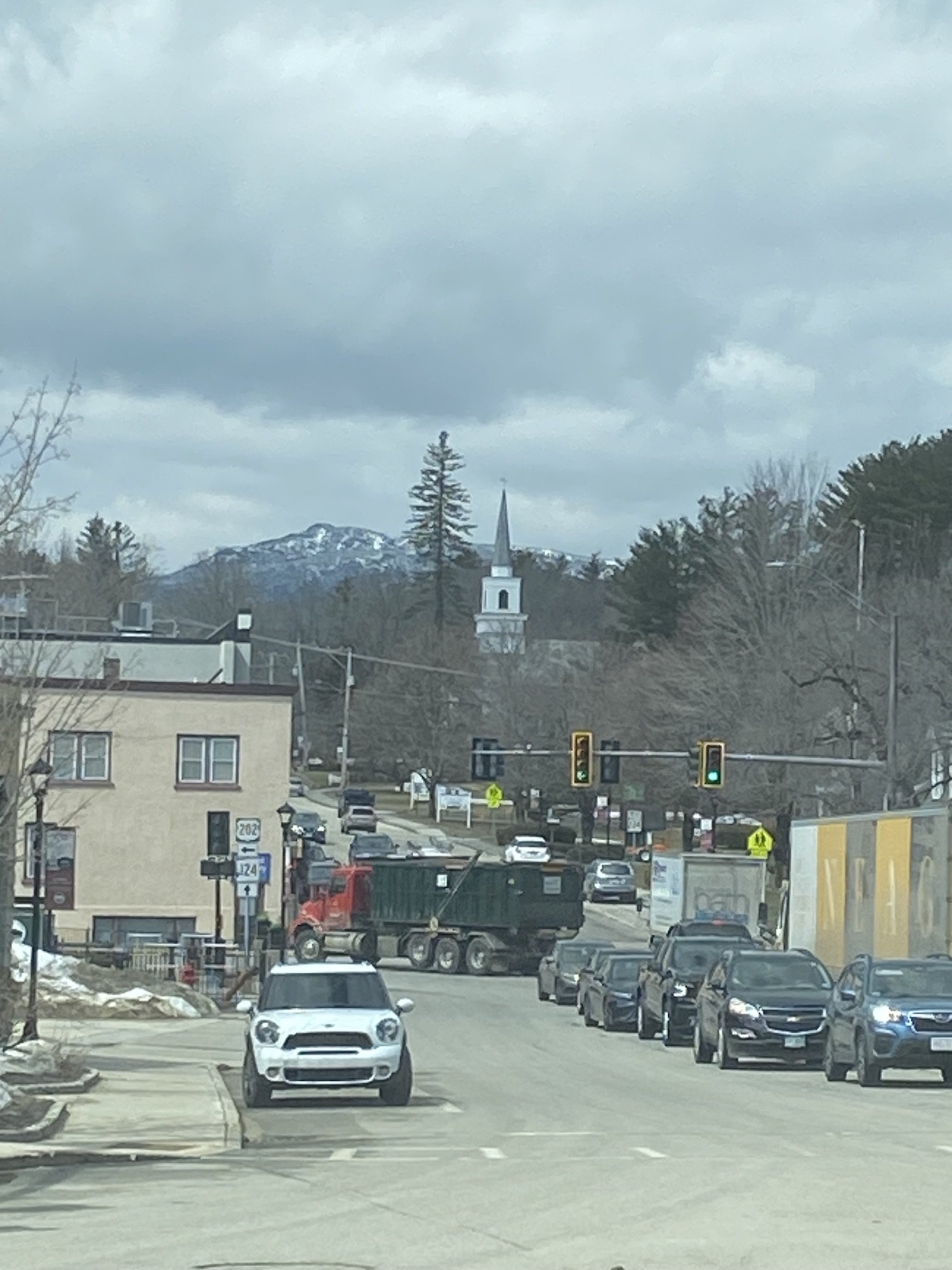The Conundrum of Off-Grid
Due to weather last week—when we were anticipating two feet of snow and got three, more or less, depending on where the wind blew—the town elections were postponed to this week. As we returned home from voting, Carl and I enjoyed a different view of Mt. Monadnock: from downtown. Carl noted the many angles of the mountain one can see from the different points of this region, and what a different impression they give. I ran with that thought to perspectives, and how many people there are in the world, each with their own views and opinions. For instance, the myriad definitions of choice and freedom and the existential consideration that freedom includes taking responsibility for the consequences of one’s choices.
And that returned me, like a boomerang, to a topic that I’ve attempted to write about a few times: how our individual choices can either be a solution or further the problem, and how you define the consequences depends on your perspective. For example, a handful of people, not least myself, have commented on the contradiction between my beliefs and my actions up here “off-grid” at Darwin’s View. (I’d include Carl in this contradiction, but he’s not here to agree or disagree). Does “off-grid” suggest fossil-fuel-free to you? It did to me when we first moved up here. At least, that was my hope and intention. But Carl and I are not entirely sustainable nor have we a zero carbon footprint here. As has been mentioned in past posts, we use a propane generator and it ran a lot this winter. I might blame our failing batteries or the too-little sunshine, but the fact is we have a lot of electrical devices. We are not living rural off-grid. We are living urban-on-grid off-grid.
I never said I’d give up my espresso machine. Shallow but true.
And I wonder. If we had stayed in Providence, in our sprawling Cape house—that we renovated and made more energy efficient, but which was surrounded by trees and thus solar wasn’t an option so we heated with biodiesel fuel—would we have had a lower impact on the earth?
Probably. Maybe? I don’t know. We’ve done other things up here: we put most of the land into a conservation easement; killed lots of trees at the advice of our forester in order to create a healthier woodland, (lots of) open space, and a view for our homestead; created a permaculture-in-the-making paradise; bought only electric vehicles with a goal to run them solely on solar power; and, of course, installed our brand spanking new R2D2 Fortress E-Vault lithium iron phosphate batteries.
They are beautiful. Big and shiny. Glowing panels that tell voltage and percent of charge. All exciting stuff. Until I read an article the day after we received those batteries about a U.S. federal judge allowing a lithium company to continue excavation work on a Native American massacre site. This is an ongoing fight because lithium is a hot commodity. It is used in electric vehicle batteries, which are a major component of getting us off fossil fuels, even if the excavation of lithium does desecrate an area that an Indigenous tribe believes holds ancestral bones and artifacts. And think what the word excavation does to the earth.
All to say, our off-grid “solution” has a harmful impact, and is this a rant coming on—or a primal scream? Because how do we perform this transition away from fossil fuels when the alternatives are often just as damaging—are they as damaging?—but in different ways? Carl and I joke about the bleeding edge of the cutting edge, that we can afford to experiment, to see what works and doesn’t. But can we? Should we? If capital-W We are going to transition from our fossil-fueled, industrial, capitalistic society to create a just and equitable world in which all beings are able to live good and happy lives, in which sacred ancestral land is protected not mined, in which (to quote the bumper sticker on our refrigerator) “our schools get all the money they need and the air force has to hold a bake sale to buy a bomber,” it will require enormous change and far more letting go and giving up of a few of our favorite things.
And the real frustration is how to bring about this necessary, vital change when it seems the larger powers—media, government, corporations—are lined up against that change? Can an individual make a difference?
So complicated, yet simple.
Here are two uplifting documentaries to show that we, each of us, can have our own impact: The Elephant Whisperers and Reflection: A Walk with Water.
And, on the other hand, in this The New York Times article, how much damage one person can do. (Very sad.): The Brilliant Inventor Who Made Two of History’s Biggest Mistakes.
